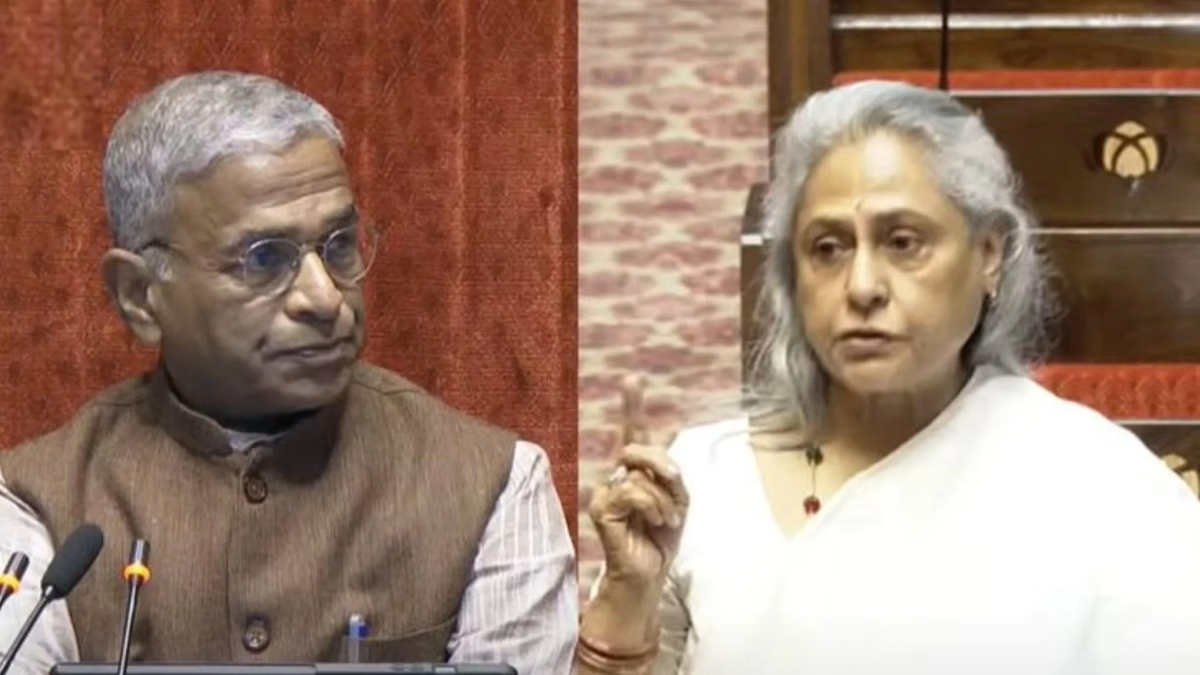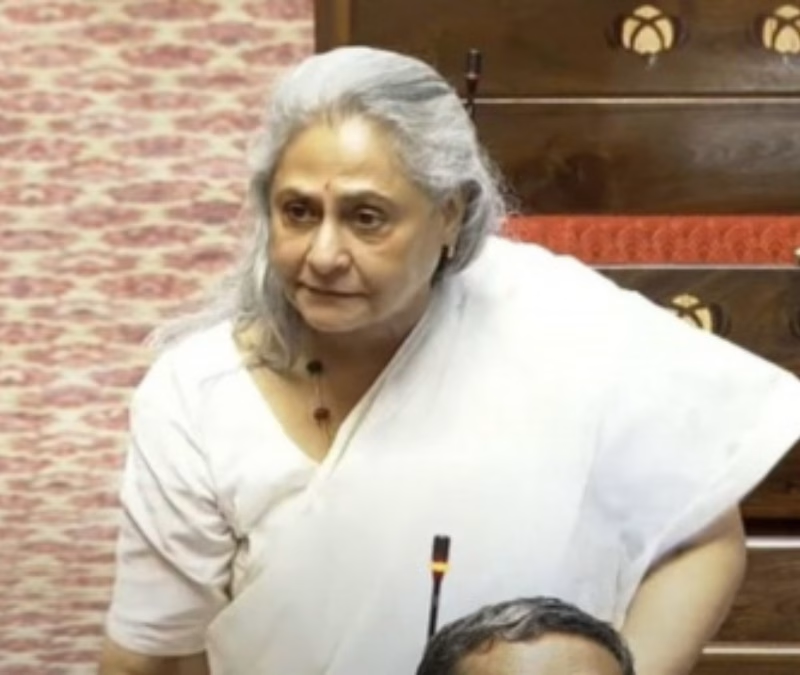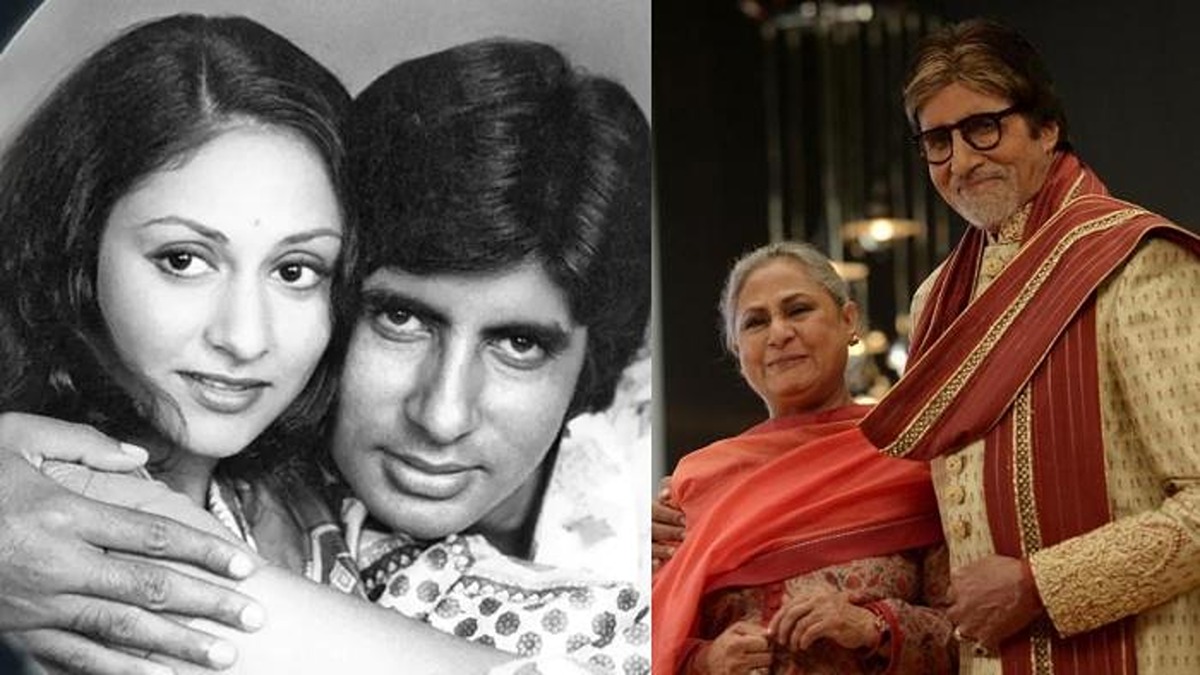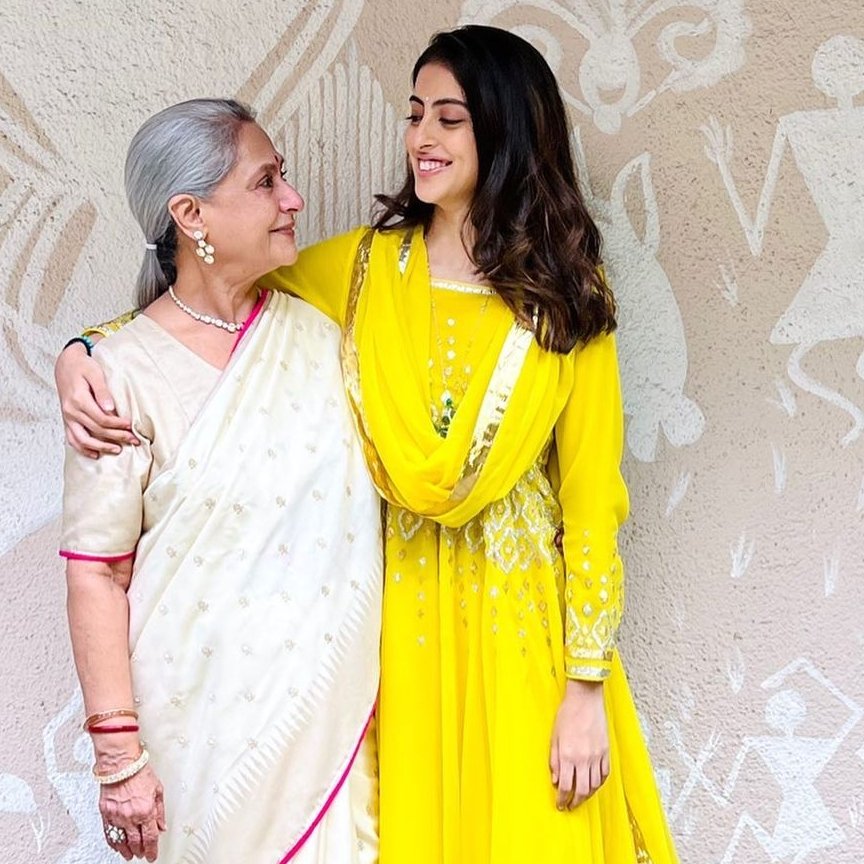Jaya Bachchan Miffed In Rajya Sabha After Being Addressed With Amitabh Bachchan’s Name: ‘Some New Method…’

In a fiery exchange in the Rajya Sabha today, actor-politician Jaya Bachchan expressed her disapproval when Deputy Chairman Harivansh Narayan Singh used her husband Amitabh Bachchan’s name as her middle name while addressing her. The incident highlighted the ongoing debate about women’s identity and recognition in public life.
The issue arose during a parliamentary session when Harivansh called her to speak, saying, “Shrimati Jaya Amitabh Bachchan ji, please.” Bachchan quickly responded, “Sir, sirf Jaya Bachchan bolte to kaafi hojata (It would’ve been enough to call me Jaya Bachchan).” However, it was noted that this was how her name was officially registered.

Bachchan elaborated on her frustration, saying, “Ye jo hain kuch naya tarika hain ki mahilaayen apni pati ke naam se jaani jaye. Unka koi astitva nahi. Unki koi upalabdh hi nahi hain, apne mein aur astitva nahi hain. Ye jo naya shuru hua hain, I just… (Some new method has emerged that women have to be known by their husband’s name. Women have no identity. They have no achievements, no identity of their own. This new thing, I just…).”

The incident sparked a wave of reactions on social media. Some lauded her courage, while others questioned why her husband’s name was used in the first place. One user commented, “No but why Amitabh got added? If she has not added then who did…or it is happening for everyone.” Another defended her stance, writing, “She’s not wrong in any sense btw.”
Supporters pointed out that misogynistic comments were missing the broader issue. One fan noted, “People today are so selective. Had there been any other woman in her place, the comments would have supported her. She is not wrong though. Before she became a ‘Bachchan’ she was a successful actress herself. Indeed, how far we have come.”

Bachchan’s granddaughter, Navya Naveli Nanda, has previously praised her grandmother’s strength and independence. In a 2021 interview with Her Circle, Navya called Jaya her inspiration, saying, “She has always been very unapologetic, to the point, unfiltered, and she has a spine.”
The incident has reignited discussions on women’s identity in India, particularly in the context of how societal norms often overshadow their personal achievements and individual identities.


